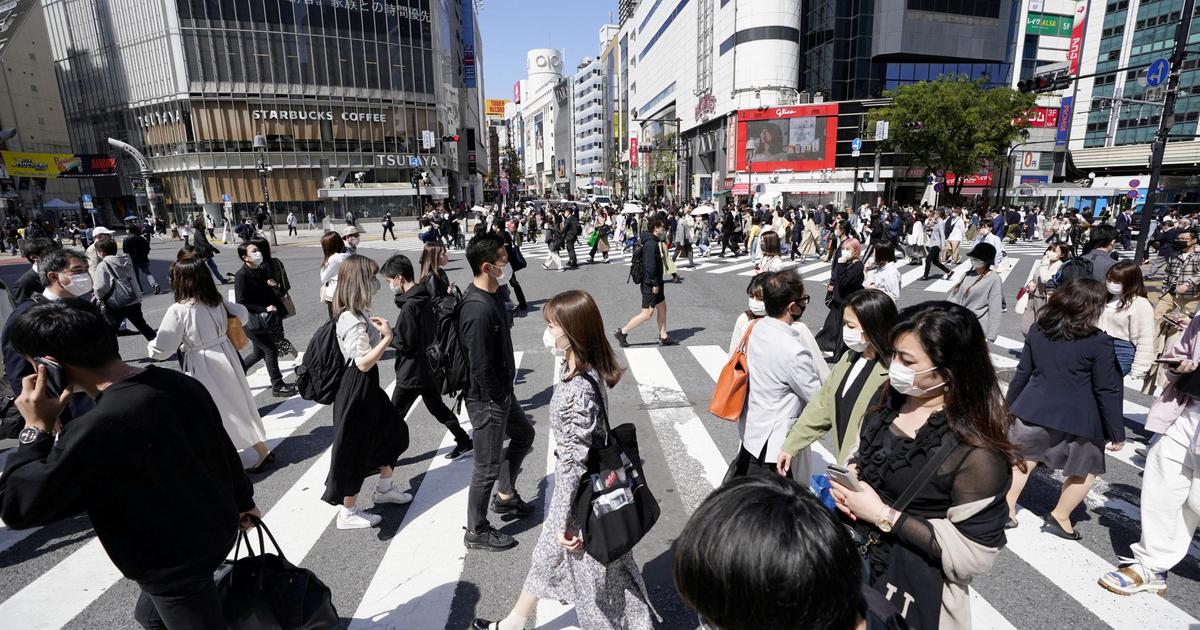Since the beginning of the coronavirus pandemic, health experts have warned that the risks for people with obesity are greater than previously thought, and here we list the 10 disadvantages of the disease against SARS-CoV-2.
1. The vaccine may be less effective:
Scientific evidence indicates that vaccines do not work the same way in people with obesity as in those of normal weight.
Therefore, the effectiveness of the future vaccine against the virus could be lower in people with obesity, leaving them more vulnerable to infections and diseases.
According to experts, this is because obese people have their immune system compromised due to their chronic inflammation, which could contribute to the fact that those affected do not respond as well to these vaccines.
"While we are developing a vaccine against COVID-19, we recognize that it may not work in all populations, including those suffering from obesity. Therefore, that is a concern," Dr.
Matthew B. Laurens
admitted to ABCNews
, Principal Investigator at the University of Maryland School of Medicine.
2. Obese patients are more likely to die than lean patients:
A recent analysis from the UK confirmed that obesity is associated with an elevated risk of dying from COVID-19.
And it is that, according to the study published in MedRxiv, the chances of dying from COVID-19 increase with the severity of obesity, from a risk of 27% higher in the first category of obesity according to the body mass index (BMI : 30.34.9) to more than double the risk in the most obese category (BMI> 40).
3. Increased chances of developing severe COVID-19:
Recently, several investigations have been published showing that this condition is a risk factor for hospitalization, admission to the intensive care unit and the development of serious consequences that can lead to death.
In the same vein, a study of 4,103 COVID-19 patients in New York significantly associated obesity with the need for hospitalization and the critical condition of patients regardless of other diseases.
In this research, the prevalence of obesity in hospitalized patients was 40%, while the non-hospitalized group was 15%.
4. COVID-19 can increase chronic inflammation:
COVID-19 can further exacerbate chronic inflammation, caused by excess adipose tissue in people with obesity, exposing them to higher levels of circulating inflammatory molecules compared to those patients thin.
This inflammation, according to the
Metabolism Journal
, can produce metabolic dysfunction that can lead to insulin resistance, type 2 diabetes, hypertension and cardiovascular disease, which have also been associated as risk factors for SARS-CoV-2.
5. Obesity is related to Vitamin D deficiency, linked to complications of COVID-19:
Another common trait in obesity is vitamin D deficiency, which reduces the risk of systemic infections and impairs the immune response.
In addition, it can prevent respiratory infections, reducing the risk of a cytokine storm that causes pneumonia.
This is why some research suggests that vitamin D deficiency could potentially mean increased susceptibility to complications and mortality from COVID-19.
6. Intestinal dysbiosis is involved with an increased risk of developing COVID-19:
obesity alone is associated with a weakened composition of the intestinal microbiome, which in turn is essential for the regulation of the person's immune system and for protection against infection.
In addition, the gut microbiome also plays an important role in reducing the damage resulting from infection.
In fact, some treatments for SARS-Cov-2 include the use of probiotics to maintain the balance of the intestinal microecology and thus indirectly strengthen the immune system, according to research published in the
MMR Journa
l.
7. Greater complications at the time of being hospitalized:
according to the experts, patients with higher BMI could present complications at the time of intubation, obtaining diagnostic images, positioning or transport.
Furthermore, obese patients may also have difficulties in the
prone position
frequently used as a clinical treatment for acute respiratory syndrome due to coronavirus.
8. Excess body fat could impact the immune system and lung function:
Research has shown that, in people who accumulate fat around the belly, obesity can activate inflammation and weaken the body's anti-inflammatory response, causing those affected most susceptible to the disease.
Likewise, the extra weight around the chest can also make it difficult to breathe, which can be dangerous, since the coronavirus mainly affects the respiratory system.
9. Hypoventilation in obese people increases mortality from COVID-19:
This condition that occurs in some obese people, in which poor breathing leads to low oxygen levels and higher levels of carbon dioxide in the blood, could increase mortality from COVID-19 by representing greater difficulty in breathing correctly.
10. Greater obesity, more chances of complications and admission to the ICU:
a French analysis published by
Obesity
highlights that the severity of the disease increases as the BMI increases.
This research also concluded that the need for mechanical ventilation was closely related to severely obese patients, regardless of whether they had other risk factors or not.
See also:
Doctor explains why obesity can be lethal in COVID-19 patients
What is the relationship between obesity and the new childhood inflammatory syndrome associated with COVID-19?
Diabetes and obesity are on the rise among Hispanics, how to fix it?
Related Video: Doctor Points to Neglected Diseases Due to COVID-19



/cloudfront-eu-central-1.images.arcpublishing.com/prisa/RDU33EMH6NBSHNKREMLJH4TGFQ.jpg)











